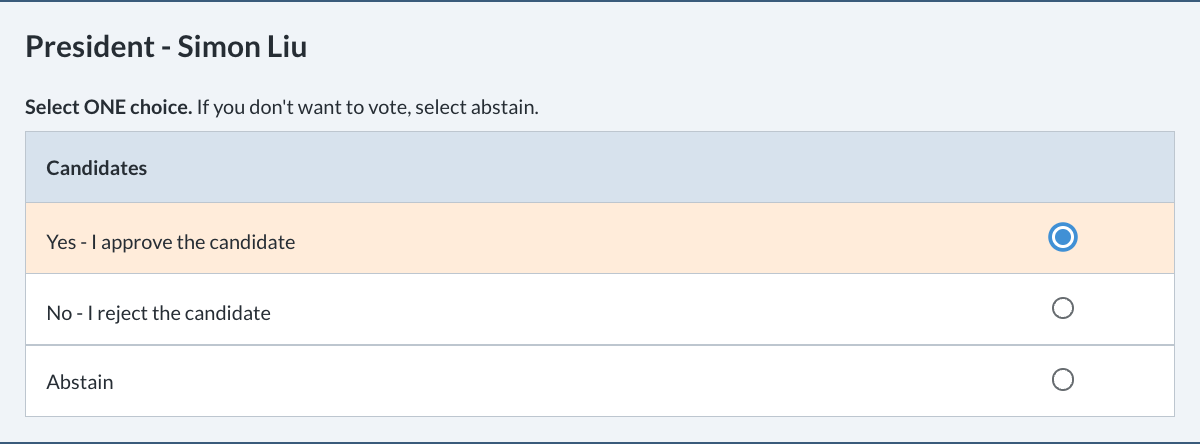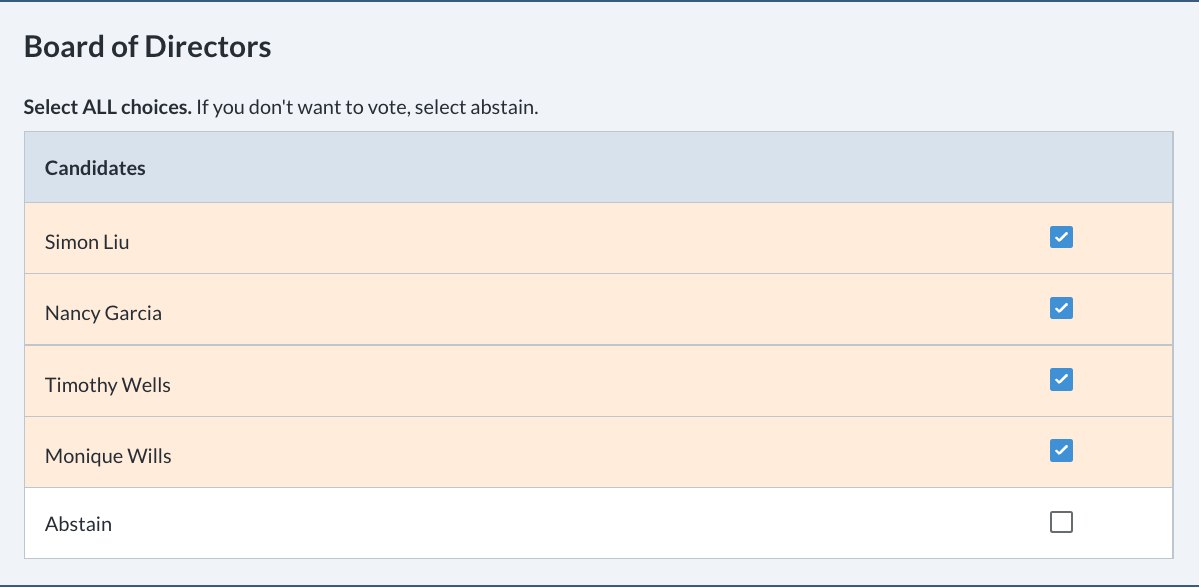As per Robert’s Rules of Order, there may not be any need for a formal vote when only one candidate is running for a position that only has one available vacancy. Therefore, unlike an Executive Officer election, the candidate is not running against other candidates.
However, many bylaws will explicitly request that the position up for election go to ballot, and a formal vote is required in this case. This formal vote for a single candidate is what we call a
Candidate Acclamation.
In these elections, the candidate is essentially running against themselves, and the members of the organization decide (in a “Yes”/”No” fashion) whether the candidate should have the position they are running for.
Other than the design of the ballot and the voting method, Candidate Acclamation elections are the same as an Executive Officer election (since they are just an Executive Officer election with only one candidate). However, when it comes to government elections, the single-candidate situation is quite rare. It is highly uncommon for federal or provincial/state elections to only have a single candidate running for the position. A single candidate is more likely at the municipal level (particularly for smaller municipalities). It is also more likely for a single candidate to be running for a provincial election in the Canadian Territories.
Because the correct way to run a Candidate Acclamation involves asking the voters whether they approve or disapprove of the candidate, the voting method used should always be a plurality, set up with one vacancy and two options. This allows you to have a “Yes”/”No” response from your voters.
Occasionally, a Candidate Acclamation is run as a forced acclamation. In this situation, the election is set up like a regular Executive Officer election using the
plurality voting method, but with the single candidate as the listed option, and no possibility to abstain. If you set up your Candidate Acclamation this way, there is no way for members to say that they feel that the candidate is unfit for the position. This may impact your turnout, as voters who feel passionately that the candidate is unfit for the position but cannot convey it may simply choose not to vote at all over voting for the candidate.
Common features used when building a ballot for a Candidate Acclamation include:
- The “Abstain” option, which allows for voters to abstain from voting on the Candidate Acclamation ballot question.
- Allowing for write-ins, which provides an alternative route for voters who don’t approve of the candidate listed for the Candidate Acclamation.
- The Additional Question Information section, which can serve as a place to set up a candidate profile for the candidate up for acclamation. You can upload a photo of the candidate, as well as provide information/statements from the candidate.
Create and test this in ElectionBuddy for free.


